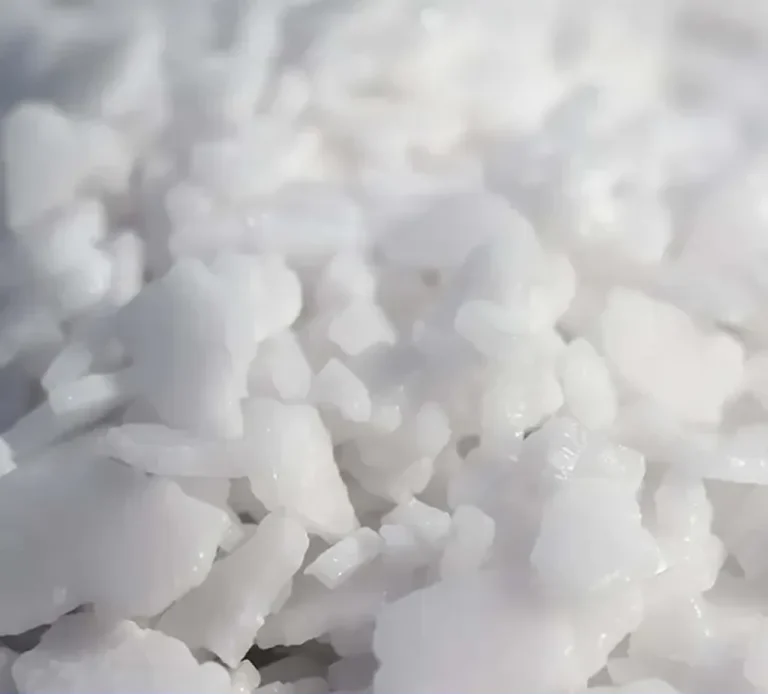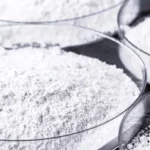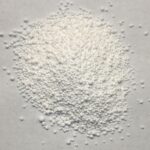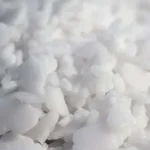What is Caustic Soda (NaOH)? Uses, Properties & Industrial Applications
Caustic soda, chemically known as sodium hydroxide (NaOH), is a highly versatile and widely used alkali. It is an essential compound in the chemical industry and plays a critical role in the manufacturing of a wide range of products, from paper and soap to petroleum and pharmaceuticals. With its strong alkaline properties, caustic soda is both powerful and potentially hazardous, necessitating proper handling and application.
This article explores what caustic soda is, its key properties, major industrial uses, safety considerations, and why sourcing it from reliable suppliers like Pars Universal Bitumen ensures both quality and compliance.
What is Caustic Soda (NaOH)?
Caustic soda is an inorganic compound composed of sodium (Na), oxygen (O), and hydrogen (H). Its chemical formula is NaOH. It appears as a white, odorless solid available in the form of pellets, flakes, granules, or a solution. NaOH is highly soluble in water and exhibits exothermic behavior when dissolved.
It is classified as a strong base and is highly reactive with acids and organic materials. NaOH is manufactured through the electrolysis of saltwater (brine), which also produces chlorine and hydrogen gas as by-products.
Physical & Chemical Properties
- Molecular formula: NaOH
- Molar mass: 40.00 g/mol
- Appearance: White solid (flakes, pellets, or solution)
- Density: 2.13 g/cm³ (solid form)
- Melting point: 318°C
- Boiling point: 1,388°C
- Solubility: Highly soluble in water; soluble in ethanol and methanol
- pH: 13-14 (in aqueous solution)
NaOH is hygroscopic, meaning it absorbs moisture and carbon dioxide from the air. This property necessitates storage in airtight containers.
Major Industrial Applications of Caustic Soda
1. Chemical Manufacturing
Caustic soda serves as a fundamental reagent in producing various chemicals, such as:
- Sodium hypochlorite (bleach)
- Sodium phenolate (used in dyes and resins)
- Sodium carbonate and sodium phosphate
- Alumina, which is essential for aluminum production
Thus, it acts as a crucial building block for both organic and inorganic compounds.
2. Pulp and Paper Industry
NaOH plays a vital role in the kraft process, which is used to produce paper. It breaks down lignin in wood chips, helping separate cellulose fibers. As a result, manufacturers can produce smooth, high-quality white paper.
3. Soap and Detergent Manufacturing
Saponification, the chemical reaction used to make soap, depends on NaOH to convert fats and oils into soap and glycerin. Furthermore, it helps in formulating both household and industrial detergents.
4. Petroleum Industry
Oil refineries use caustic soda to remove acidic impurities like hydrogen sulfide from petroleum products. This process, known as caustic washing, improves fuel quality and reduces corrosion.
5. Textile Industry
In the textile sector, caustic soda is used during the scouring process to eliminate waxes, oils, and other contaminants. Consequently, it enhances the fabric’s dye absorption and overall texture.
6. Water Treatment
NaOH neutralizes acidic water, adjusts pH levels, and assists in removing heavy metals and other contaminants. Therefore, it plays a critical role in municipal and industrial water treatment facilities.
7. Food Processing
Food-grade caustic soda is used for peeling fruits and vegetables, curing olives, and processing chocolate and cocoa. It’s also involved in soft drink production—provided it meets strict food safety standards.
8. Pharmaceuticals and Medicine
Sodium hydroxide is used to formulate several types of medication, including pain relievers and anticoagulants. Additionally, it assists in pH adjustment during drug manufacturing processes.
Safety and Handling Precautions
Caustic soda is a hazardous material that requires strict safety protocols:
- Corrosive Nature: Causes severe burns upon skin contact. Protective clothing, gloves, and goggles are essential.
- Inhalation Risk: Dust or vapors can irritate the respiratory system. Proper ventilation is crucial.
- Reaction with Water: Mixing with water releases heat and can cause violent splashing. Always add caustic soda to water slowly, never the reverse.
- Storage: Store in a cool, dry, well-ventilated area away from acids and flammable materials. Use airtight containers to prevent moisture absorption.
Environmental Considerations
Improper disposal of NaOH can lead to environmental damage. It can increase the pH of water bodies, harming aquatic life. Therefore, industrial facilities must follow stringent wastewater treatment and disposal guidelines.
In some regions, environmentally friendly alternatives such as biodegradable alkalis are being explored, especially for applications in the food and detergent sectors.
Why Choose Caustic Soda from Pars Universal Bitumen?
Pars Universal Bitumen provides premium-grade caustic soda for industrial, commercial, and manufacturing use. Here’s why our customers choose us:
- ✅ High Purity: Our products maintain consistent chemical composition for peak performance.
- 🚚 Global Distribution: We offer timely delivery with flexible packaging options, including bags, drums, and bulk.
- 🌍 Compliance Guaranteed: All shipments meet ISO and international quality standards.
- 🔧 Expert Assistance: Our technical team is ready to guide you through product selection and regulatory requirements.
- 📅 Custom Solutions: We tailor our offerings to meet specific project demands.
Choose us for reliable sourcing, competitive pricing, and exceptional customer support.
FAQs About Caustic Soda (NaOH)
1. Is caustic soda the same as lye?
Yes, lye is another name for caustic soda, particularly in soap making. Both refer to sodium hydroxide (NaOH).
2. Can caustic soda be used for cleaning?
Definitely. NaOH is highly effective at removing grease, organic buildup, and blockages in drains and industrial systems.
3. What precautions should be taken while working with NaOH?
Use personal protective equipment (PPE), ensure good ventilation, and follow all safety data sheet (SDS) instructions. Proper storage is also essential.
4. Is caustic soda safe for food processing?
Yes, as long as it is food-grade. It’s used in limited, controlled quantities for tasks like peeling fruits and processing cocoa.
5. How is caustic soda shipped?
NaOH is available as a solid (flakes or pellets) or a liquid solution. Pars Universal Bitumen offers moisture-resistant packaging and bulk delivery options.
🏁 Conclusion
Caustic soda (NaOH) is indispensable across numerous industries due to its powerful alkaline nature and versatility. Whether it’s used in chemical production, water treatment, or food processing, its applications are both varied and vital.
However, its reactive and corrosive qualities make proper handling a top priority. By partnering with Pars Universal Bitumen, you gain access to high-quality, regulation-compliant sodium hydroxide, supported by technical expertise and dependable logistics.
📞 Contact Pars Universal Bitumen Today!
Looking for a reliable supplier of Caustic Soda (NaOH)?
📧 Email: [email protected]
📞 Phone: +971 4 878 2031
🌐 Visit: Pub-ltd
👉 Request a Free Quote Now – Fast Delivery, Global Reach, Trusted Quality! If you have any other query or question, please don’t hesitate to contact us.




